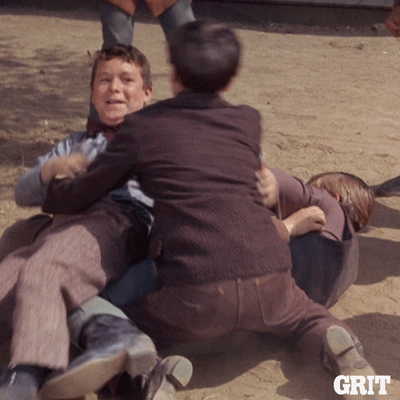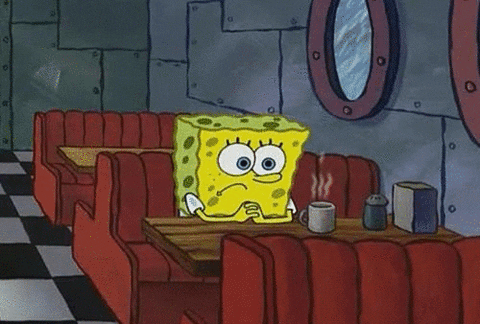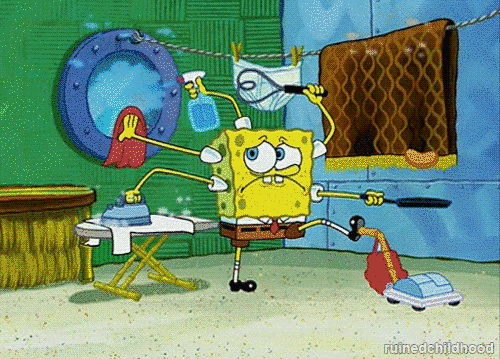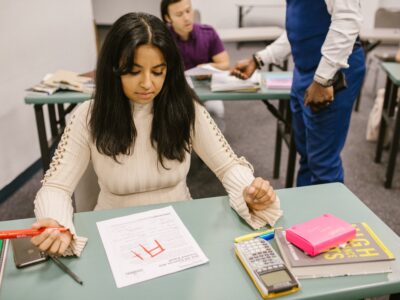It actually isn’t my parents’ fault that I’m like this. Growing up, my friends who had anxiety attacks over grades usually had parents who put a lot of pressure on their grades. My parents did not. My parents always made it clear they loved me regardless of the percentage given to me by my teachers. When I say it’s usually ‘the parents’ fault,’ I speak from what I observed of my friends with similar neurosis. What neurosis? The try-hard neurosis.
Nobody likes a try-hard. The one person they like less? A slacker.

Again, I speak from personal experience. Despite my love of learning, I’ve always hated school. In elementary school, I was in special education to learn to read— a bizarre beginning for a writer. I blamed my teachers, the nameless mass of them who regularly pulled me aside and explained I wasn’t trying, that I needed to try, I needed to actually try, and my favorite: do I even care? Did I?
Well, yes, I did. I cared a lot in the beginning. But trying your best only to be consistently scolded for being lazy gets frustrating, so sometimes, you just lean into it, and eventually, you spend the better part of elementary and middle school not, in fact, trying.
Growing up, only boys seemed to have ADHD.

ADHD boys got fidgets during silent reading. ADHD boys got walks around the halls to tire them if they were being disruptive. ADHD boys got bouncy chords on their chairs, even yoga ball seats. When it came to me, it seemed that my classmates regularly moved seats to avoid my violent leg bouncing. I believed that ADHD was a scam invented by boys. I hated ADHD boys.
I zoned out most school days. They called it a choice, but I never knew I was doing it until it was too late. I furnished my imagination in an effort to make the best of this. I remember in fourth grade when the teacher cold-called me and asked me to explain how dashboard gauges worked. She asked if I was listening, and I said yes, but since I couldn’t explain, she sent me to the corner. I still remember how much I hated myself for letting them see me cry.
But being put in the guppy reading group, compared to the fishes and sharks? That was devastating.

Still, I bluffed my way around learning how to read clocks, divide fractions, basic US geography and all of Spanish. Maybe that’s how I ended up in special education. Maybe it was destiny. It was probably the complete resolution to failure by age seven, though.
If two roads lead to the same destination, but one road is far more difficult to trek, which would you pick? It’s an evolutionary principle to pick the path that exerts less energy. At seven years old, this seemed a much more tangible thought process than trying to anticipate why I needed literacy.
I used to call myself the dark horse of slackers.

Why? Teachers never saw me coming. I would sit in class and imagine the teacher’s internal monologue assessing me: She doesn’t talk, doesn’t have friends, doesn’t go on her phone, really has nothing going for her, so what could she be distracted by?
As a self-proclaimed prodigy in cheating, I began taking pride in my bluffing, behaving like I was a method actor rather than just talking loudly with confidence about topics I didn’t understand. It got to the point where I enjoyed cheating. I enjoyed learning to hack Duolingo. Cheating was a challenge I was actually good at. Throughout middle school, I only wore skirts on test days as a testimony to this, gambling my teachers wouldn’t risk making a preteen girl lift her mini skirt to prove she had written notes on her upper thighs. I felt justified in cheating. It was phrases like “academic integrity” and “honor code” that made me feel righteous. These unfulfilled promises loftily assumed the school system was not only moral but the deciders of morality. I enjoyed sticking it to the institution that loved to stick it to me, even if it took screwing myself.
Come high school, I desperately wanted to do well on the SAT.

My dad told me, “Ari, you’re going to have to actually try and study,” and “I know I told you already, but you clearly don’t care since you haven’t started studying already, but you’re going to have to actually try.” On the PSAT, I batted a crisp 1000 and told people I hadn’t studied (true) and hadn’t tried (false). With about three months of studying under my belt, I brought home a solid 1190 on the SAT Junior year — but it wasn’t enough. Not for the schools I wanted to apply to, and I needed a borderline miracle SAT score with my GPA. I signed up again, but then the Pandemic struck. This began my second studying spurt, which spanned the rest of Junior year. Each month, I prepared for an SAT that got canceled.
“You know,” my SAT tutor told me one evening, “if you actually paid attention, you’d do well.”
I almost cried, laughing. I knew as well as my tutor that I could hardly sit still the entire forty-five-minute tutoring session, let alone the four-hour test. I knew better than my tutor that I effectively shut down after forty-five minutes, and focusing became on par with holding water, wrangling a wild boar or corking an active volcano.
After a year and six months of studying, I took the final SAT in August— another 1190.
In my freshman year of college, I got diagnosed with ADHD.

It happened right after my mom got therapy and received an ADHD diagnosis. I was not surprised my mom had ADHD. In fact, I felt a strange indignity during my assessment. A bizarre rage overrode my better judgment, an insatiable sense that if the psychologist didn’t diagnose me, he wasn’t much of a psychologist.
Being diagnosed was comically underwhelming. Two assessments two weeks apart, then an email stating the obvious. Nonetheless, it was validating. My entire life I felt like I was slowly going crazy, aware that there was something about me slightly off, and unable to discern what exactly that was. I would sit there, attempting to explain to my teacher that ‘just focusing’ wasn’t the simple task they made it out to be, unsure of what was wrong with me. I hated myself for many traits that I later found out were symptoms. The reframe may seem arbitrary, but it was everything.
Boys are three times as likely to be diagnosed with ADHD. It’s a similar statistic for autism. My mom, my best friend and most of my family were also never diagnosed because the DSM-4 ADHD/ASD criteria was based disproportionately on male test subjects. While this may seem insignificant, the consequences of this scientific error have determined the course of my life. With the DSM-5, this has been largely fixed, which is why I and my loved ones all got diagnosed around the same time, but that doesn’t negate everything leading up to that.
With a diagnosis, you learn how to handle yourself.

When you don’t know you’re neurodivergent, when you try to approach yourself like a neurotypical person, and when that fails or is less effective than expected, you blame yourself. As it is, with the diagnosis, it’s hard not to blame yourself. Without a diagnosis, you just walk through the world with an invisible handicap, thinking that handicap is you.
My diagnosis allows me to forgive myself. I can forgive myself for having verbal impulse issues and move forward from there. I can forgive myself for doing worse than I would have liked on the SAT. I can forgive myself for never paying attention as a kid. I can move on. For a project, I read these sociological ADHD women’s articles that found fancy ways of telling me the story of my life. They’re online. Hundreds of thousands of me, and I wish I’d known as a kid, things could have been different.



















